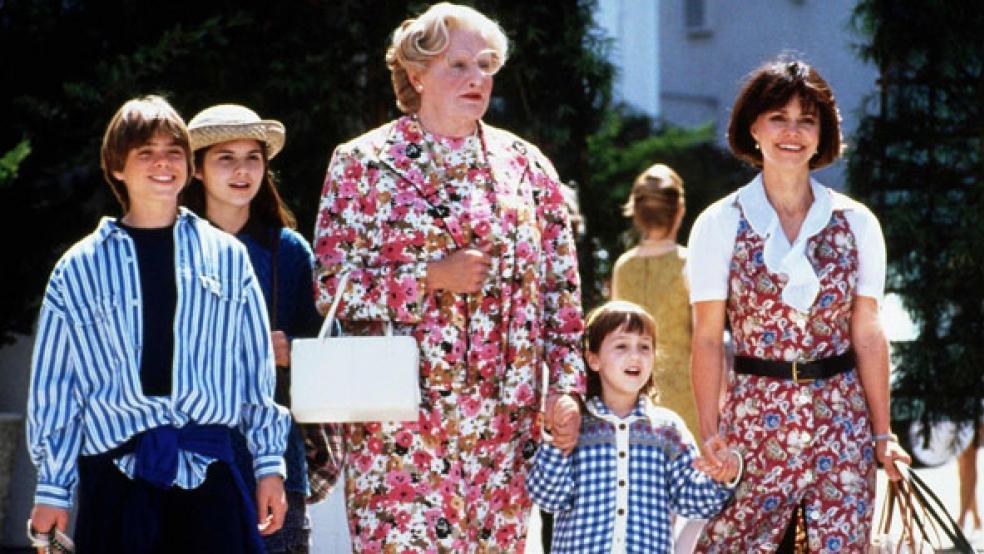Linda Terry, at age 63, is bucking economic trends by not only having full-time work she enjoys – but getting paid to do what life has taught her.
In an economy that continues to see a national jobless rate of over 9 percent – and even higher rates in the West, which now has an unemployment rate of 10.6 percent, according to the Bureau of Labor Statistics – Terry hasn’t had a problem finding work for more than two years. After signing up with an L.A.-based employment agency called Rent-A-Grandma – yes, that’s its name – she’s been working full time as a children’s caregiver, nanny, housekeeper, estate manager, and all-around majordomo. It’s work that suits this divorced mother of three and grandmother of ten just fine.
“I’ve taken my experience of raising my own three sons and running a home and turned it into something I now get paid for,” says Terry. “I find that very satisfying.”
Terry earns about $500 a week and works about 8-10 hours a day. She has Sundays off but a roof over her head full time. She’s currently working a three-month live-in assignment in the Manhattan Beach area of L.A. with a family of four, including a newborn. (The hiring family pays a fee of about 10 percent to Rent-A-Grandma.)
At a time when many older workers not only want to work but must work for economic reasons, Linda Terry can’t imagine giving up her job. She cares for the older child, age two, while the mom tends to the newborn and the dad works. Also on Terry’s docket are housecleaning, grocery shopping, and cooking duties. It’s not uncommon for her to be entrusted with the family’s credit card to make grocery-store runs, she says, and in the past, she’s paid vendors such as carpet cleaning services and others when the parents were out of the house.
These are responsibilities she doesn’t take lightly. “It’s an honor to be trusted on that level, and it’s a trust I would never violate,” she says.
Terry’s current work arrangement – and her six previous caregiving and home management jobs before this one, nearly all of them live-in situations – have been through Rent-A-Grandma. The company, started by Todd Pliss, a former children’s tutor, matches those who need caregiving or home management services with mature workers ready and willing to provide that work. He handles the reference checks and background checks of all potential workers (he uses an outside firm to do that), and has about 70 mature individuals working right now. People sign up through the website, rentagrandma.com, and the staff takes it from there.
And, yes, Todd Pliss is contemplating Rent-A-Grandpa services. “We already own that domain name,” he says, laughing. Pliss also says he’s in the process of selling Rent-A-Grandma franchises. Dallas and Houston are likely locations for the first two, and he’s exploring arrangements in Florida as well. A franchise sells for approximately $30,000, says Pliss, and includes a protected territory, marketing help, sales training, and use of branded publicity materials.
“I don’t know of any other service that really concentrates on older, mature women,” Pliss says. “Seventy percent of the women have worked with children in the past,” he says. “Or they’ve done elder care. Many of them are retired teachers, lawyers, administrators. These are able, qualified people who have lost their jobs or who have retired, but…they have a lot to offer and want to work. I have definitely seen how this economy has affected people of this age.”
The term “mature worker” is fungible: Rent-A-Grandma has placed people “from age 48 up into their 80s,” says Pliss. The majority work in full-time caregiving arrangements, “though many families also want somebody at their homes after school, when their children get home, until about 8 p.m., when the parents or the single parent gets home from work.”
Anna Maria Caldwell, a mother of three in Valencia, California, has hired a helper through Rent-A-Grandma for those critical crunch hours when an extra pair of hands makes a huge difference. The person she hired, she says, “jumped right in, helped with homework, dishes, cleaning, got down on the floor and played with my six-year-old and really focused on her. For me, the true benefit of older workers like this is that they have a maturity you might not see with a younger person.”
Linda Terry prefers a live-in arrangement to live-out because it helps her keep her costs down. With most of her family back home in her native Cincinnati, she doesn’t feel the need to maintain a home or an apartment. “If I’m between jobs and I really need to, I’ll rent a room somewhere,” she says. “Otherwise, I move from home to home. I don’t mind that. If I have to take care of a home, why not get paid for it?”



